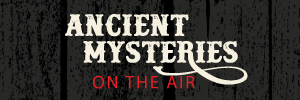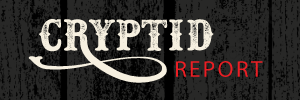Feb 18, 2022
Stuart Davis joins us to talk about the intersection of artists, the metaphysical and alien life.
You can find his website at aliensandartists.com and his podcast on the app of your choice.
Thanks Stuart!
TRANSCRIPT
Please note we do not guarantee 100% transcript accuracy. The below reflects a best effort. Thank you for your understanding.
Jim Harold 0:04
UFOs. Are they aliens? Government secret projects? The imaginings
of disturbed individuals? Or just outright hoaxes? We're here to
find out. Welcome to Jim Harold's UFO Encounters.
Welcome to UFO Encounters. I'm Jim Harold, I'm so glad to be with you once again. And I always love to speak with colleagues. People are in this world of podcasting, and kind of getting the message out there and also creating connections between people who have experiences or stories or those kinds of things. And we have just two gentlemen on the line, today. I am talking about Stuart Davis, he is the host of Aliens and Artists. That's his podcast. And he's also the creator of a new project. It's called the Experiencer Group. It's a community site for experiencers of strange phenomenon ranging from ghosts, precognition, remote viewing, near death, out of body, abduction, contact with non human entities, and much more. And we're so glad to have him with us, Stuart, welcome to the program. Thank you for joining us today.
Stuart Davis 1:16
Super happy to be here. Love the show, longtime listener and all
that. So it's really wonderful to speak with you, Jim. Thanks for
having me on.
Jim Harold 1:24
Well, I must say, I mentioned to you before, when I talk to a
podcaster, who has their stuff together, I can always tell by the
sound. So it's always good to talk to somebody like that. And
you're certainly in that, in that category. How did you get into
all of this? What-what began your interest in--your entry into the
strange and unusual?
Stuart Davis 1:45
Well, in terms of Aliens and Artists as a podcast, certainly the
artist part came first. Been an artist since gosh, I guess 10 or 11
years old. Pardon me, when I first learned to play guitar was when
I began writing songs. So the two occurred nearly simultaneously.
So the art part is very old. And I've been making a living as an
artist since I've, I guess, 20 years old, 19 years old. And I'm 50
now, so 30 plus years. And that career in music expanded to music
and TV. So I've been in that world for a long time. And in the 90s,
early 90s, I read abduction by John Mack. I subsequently became
friends with him, I had written quite a bit of music, even then,
about the phenomenon, certainly including abduction, contact with
non human entities and then also further afield, going into
mysticism, the esoteric, the occult. So John and I kind of hit it
off. Unexpectedly, he took me to conferences with him and spent
time with him in Boston at his program for extraordinary
experiences. And I met many, many experiencers through John, as
well as researchers. And that's functioned in a delayed fashion, I
would say, certainly, that was really interesting to me in the
early 90s. But it had a seeding effect that really didn't begin to
come to fruition fully until around 2010, which is when I had a
experience, I would say, now, I would characterize it as my first
conscious experience where I had a contact event with a Mantid
entity on New Year's Eve in 2010. From that, spoked a wheel of a
variety of other things from UFOs, craft, also, quasi-biological
sighting, and these were with my wife and my family, and so that,
you know how it is, how the leg bones connect to the ankle bone,
thing.
Jim Harold 3:58
Yes.
Stuart Davis 3:58
You know, 10 experiences, it's not that long before, you know, 50,
you have a few experiences, one thing leads to another. And so fast
forward to a few years ago, when the pandemic hit, I decided to
finally try to find a way to integrate and braid the artist, half
with the experiencer half. And that's how Artists and Aliens came
about, which is really a podcast about how contact with non human
entities impacts and influences human creativity in all the various
domains. So that's what got me to about 2019. That make sense?
Jim Harold 4:36
Makes sense to me. Now, one thing that I've always heard from
songwriters, for example, or even authors, both certainly fall in
that category of artists, that a lot of times they'll say about a
song, particularly you'll hear somebody will write like a classic
song, this tremendous hit, and they'll say, "Well, it just came to
me. And you know, I just kind of wrote it in 30 minutes." Now, I'm
not saying that songwriting is easy, and I'm sure there's many
times people toil over it. And in they have a great success with
it. And it was the product of hard work, but some things just seem
to kind of fall from the universe. And I've always thought about
that tie between artists and the metaphysical, there seems to be
something there. I mean, artists, you know, seem to me to be pretty
tuned in people. Is that--is that an accurate statement?
Stuart Davis 5:26
Very much so. And I would say that as I began to live and
experience more of that in my life, and then subsequently turning
that into the inquiry, much more broadly, not just among other
songwriters, but filmmakers, painters, theatrical performers,
television, any field of artistic endeavor that you can think of, I
feel that this is the great untold story of human creativity,
actually, and it goes back thousands and ten thousands of years,
and what you find is a very bizarre and engrossing, enchanting
relationship between artists and metaphysical--oftentimes, you
know, clearly, we're talking about a spectrum here, Jim. I think
that on one end of the spectrum, you can characterize a lot of
these Eureka events and creativity, as an artist's own higher self,
as perhaps their own, disowned or personified muse, let's say that
being one end of the spectrum. But all the way over on the other
end of the spectrum, you have these very concrete encounters with
what I would say there's a great consistency of what appears to be
discrete, sentient entities that have their own life, they exist
when we're not thinking about them. But they show a peculiar
magnetism and fascination with artists, the creative process, and
then everything in between that you can think of is there as well.
So as soon as you start to look, you just find hundreds and
hundreds of these cases, and they go way back, they're all over the
world. Many of them are very famous, you got your Elvis, Jimi
Hendrix, David Bowie, you know, the list of stars is long, but much
longer is the list of artists working in the quiet and often the
anonymous stretches of society, who don't invite or seek these
experiences. But once they happen, they come to eclipse much of
their life, and they end up in a dyad that is oftentimes very
difficult to break and that it has its great treasures and rewards,
but also its perils.
Jim Harold 7:41
Now, let's take the idea of extraterrestrials or aliens. Do you
think it's the case--for the sake of argument, we say they exist.
Do you believe that perhaps they seek out creative types
specifically? Do we know that there's any data or anything that
says, yeah, a creative person is, you know, 50% more likely to have
an experience? Is there anything like that?
Stuart Davis 8:12
Well there's certainly an enormous body of literature where you
know, a library around the world that's historical and broad, but
it's not satisfying in the sense of some hard, empirical, robust
database that--where kind of work has been done more informally
among those who are experiences or who are probing quaint or
adjacent to them and their lives, family members, loved ones, or
researchers. But I would say that to the center of your question,
do these beings seek out artists, specifically? There again, I
think we find a really interesting combination and variation. So I
do think there's a category which is cultural social influence.
There's a strategic efficacy to landing your craft in David Bowie's
backyard if what you're seeking is a penetration of the culture and
the consciousness of the collective, which is coming in a
circum--you're circumventing a lot of the hurdles and obstructions
that you might otherwise face if you went at it straight on. So why
don't they land on the lawn of the White House? Well, I've--I would
propose that perhaps they calculated the results and outcomes of
what it is to contact hundreds of musicians, and rock stars, and
painters, and TV and film writers, and creators of all sorts,
novelists, and anyone who has that creative component as a central
feature of their life and they have a large reach. That is a very
strategic way to influence, so I think that's one category. And
then I think there's a, there's a set of variables that include
unique relationships. Some of these entities seem to be
particularly interested in one individual. So I think there's cases
as well, where it's not as though the entity is necessarily trying
to change the world, or channel Seth speaks or whatever it may be,
but that they seem to have some metaphysical intimacy with an
individual. And it's more about that one to one profundity for each
of them. And then again, everything in between some of these
entities show up once, some of them are lifelong. We just did a
segment about Paulina Peavey, painter, who had 50 plus years of
constant unbroken dictation, basically from this nonhuman entity,
and they worked in tandem, fused together essentially, creatively,
spiritually as well. And then the other thing you find is that this
is a big transgressor of categories and boundaries, it doesn't play
nice and neat with the lines that we like to draw inside. So you do
find that, as with so many contactees and abductees, trauma is an
element of their childhood, great floods of insight and
inexplicable onsets of talent, but then you also have confusing and
sometimes disorienting, religious, spiritual, esoteric, mystical
influxes, that blend with the art and the creativity. And it kind
of goes all over the place. This is not a car that wants to be
driven in a neat and tidy way. It swerves a lot, which is honestly
as--as you can appreciate, as someone who makes such a great amount
of, of all your shows and everything you've created, it's a
fascinating subject to dive into as a show creator, because it's
seemingly inexhaustible,
Jim Harold 11:56
It is, it is. You hinted at something and I want to, I want to
delve into it, because I think there's so much truth to it. When I
started following all this, you know, when I was a little kid,
watching In Search Of with Leonard Nimoy, you know, in the intro,
and you may have heard me say this before, you know, they had, "We
will--we'll investigate extraterrestrials, and ghosts, and strange
disappearances, and strange creatures." And you know, and
everything was very siloed, like, "We're gonna talk--today we're
going to talk about cryptids. And then tomorrow, we're going to
talk about ETs. And then the next day, we're going to talk about
the Bermuda Triangle," whatever it was. And I always used to think
of these things as very siloed. And most people I talk with who
look into these kind of Fortean realms, they started out that way
as well. But as time goes on, the line blurs, and the question is,
is at least some, if not all of this stuff related? And then I ask
the question, is there a trickster element? Is there something you
know, when you go looking into something, it's kind of like a hall,
an intentional Hall of Mirrors, that it's almost obstructing our
view? Almost intentionally?
Stuart Davis 13:20
Yes, yes. So in the spirit of that, yes, my view and experience of
it at this point, which is 25 years plus into making my own inquiry
and having experiences over time and knowing at this point, many
hundreds of experiencers before even starting the podcast. My--the
way that I've lived within this enigma has evolved over time and
continues to, so I want to provide that caveat, which is actually
to one of the points I would like to respond to your question with
is that I think one of the things that all of those various
anomalous phenomena, whether it's pre cognition or mediumship, near
death experiences, abduction from non human entities, one of the
things I think they do have in common is that they function as
developmental drivers, for many of those who experienced them. So
the person, the human being, before the experience is not the same
as the human being after the experience. And while I think that
that's kind of a prosaic and obvious thing to say, when you really
get into the details and into the weeds of this, you see that there
also seems to be an intentional component to a lot of the non human
intelligences or the Phenomenon let's just say with a capital P.
When it interacts with human beings--this would include your
trickster element that you made reference to--there does seem to be
a desire or at least curiosity around why and how human beings
developed--develop through different stages of consciousness,
different worldviews. Your--this is a worldview buster, ontological
shock, which John Mack, I believe he actually came up with that
phrase. If not, he popularized it. Ontological shock is such a
centerpiece to all of this. And back to your trickster component of
the question, I feel like one of the things that's very interesting
about the Trickster is that it often leaves the experiencer with no
satisfying recourse, no satisfying response in terms of the
rational, objective way that we typically would like to make sense
or make meaning of these very mysterious events. And so when your
existing worldview, your existing techniques, methodologies,
practices collapse, and are insufficient to address the enigma, and
the enigma is still living there after you've made attempts at
those, then you get curious about, well, "What might work?
What--how might I have to change or expand as a being in order to
accommodate or meet this mystery where it lives?" And that's the
developmental driver part. So a very broad yes, to your response is
that I would say, not only does the Trickster, or even more
benevolent elements of this seem to intentionally elicit and invite
us beyond our worldview and beyond our present comfort zones. I
think it's part of the strategy in the long run.
Jim Harold 16:35
It's interesting, because you talked about ontological busting. And
I think that's, that's a great phrase. But it occurred to me that
it's really non discriminatory, because it can break your
worldview, whether you fall on one line where you're extremely
scientific, skeptical of everything, you look at the world very
materialistically. And by materialistically, I'm not talking about
you like stuff. I'm talking about you think it's nuts and bolts,
you think a brain is a brain, there is no soul those things. And
then on the other side, you have people maybe who are very kind of
religious fundamentalists and that type of thing. I mean, it's a
equal opportunity. Ontolo--ontological--if I could say that, even
though I have a master's degree, and we used to say that all the
time in research, I still can't say it--ontological buster for both
sides. And everybody in the middle. I mean, it doesn't
discriminate. And I think there's something kind of cool about
that. And again, to me, I don't think that means the scientist
throws away everything that they've learned and all of their
knowledge, God bless science. Some people would find that statement
ironic. But God bless science. I think it's great that so many
great things it allows us to do, but that's not the whole answer. I
would say the same for religion. I think that religion certainly
has its place. And and, you know, like most human pursuits, there
have been some abuses, of course, but there have been some very
good things have come out of it. So you know, I don't think you
have to throw away your worldview, totally. But you have to open it
up a little bit to allow some more sunshine in in some more, some
more explanations. I don't know if I'm being very clear on what I'm
saying. But what I'm saying is you can maintain a part of your
belief system, but I think you just have to be open minded.
Stuart Davis 18:32
I completely concur. I think that's a beautiful summary. Actually,
there's a phrase that's popular in this field of studies called
integral studies, which is--the phrase is transcend and include,
which refers exactly to what you were just describing. So let's say
if you do have this rational or scientific approach to the set of
phenomenon, and then you have some experiences that aren't
sufficiently explained or metabolized by the scientific method, I
agree with you, that doesn't mean we don't need the scientific
method. That doesn't mean that we don't need an objective set of
tools to investigate and manifest physical, corporeal nuts and
bolts. That's all there. What tends to happen, in my view, or what
I would hope is going to happen more often is a VAT plus. So what
we find is that yes, there is an objective component to these
mysteries, but there's also an inter objective component to these
mysteries, which is that an individual's physical being seems to
have a relationship that is interactive and activating with the
objects they're interacting with and then you have the subjective,
which is a very mysterious component about this, much of
this--these phenomena seem to be able to precisely drill into what
an individual's consciousness and unique experiences and then
extract that to be something quite singular in what they're
experiencing. And so, there are ways in which the phenomena is
totally unique to some individuals, but then also carries universal
commonalities, common denominators, which goes to the inter
subjective, the we part of this, the mutuality part of this, which
would be our culture, the way that the inside of our consciousness
is shifting in response. So, in a nutshell, I agree with you, we
actually need religion, and we need empirical methods, and we need
mysticism and creativity. Basically, every great domain of human
endeavor, brought together in more coherence would really be the
ideal way to go about solving this mystery, because it shows up in
all of those places, and you're just taking only a few pieces of
the puzzle or refusing to admit that other domains have other ways
of knowing. And if we get into conversation among all of them,
we'll probably have a net gain. That's preferable to just, as you
were saying, the siloed approach, which is real insulating and
limiting.
Jim Harold 21:18
Our guest is Stuart Davis, we are talking about his podcast Aliens
and Artists. We're talking about the metaphysical, the
supernatural. And now we're going to talk about something that he
launched recently called the Experiencer Group, what it is and why
he decided to launch it. So tell us about this group.
Stuart Davis 21:39
Yes, the Experiencer Group was actually co founded, I'm one of
three founders. My partners in this are Jay King and Kirsten
Blackburn. Jay King and Kirsten Blackburn actually came from
Richard Dolan's site, his membership site originally, that's where
I met them, we were all three, participating in experiencer
meetups, which are basically support groups, conversation groups
for experiencers, in that case, specifically of contact with non
human entities, UFOs, more in that territory. And then that gently
blossoms, you know, when they began to hold these meetups, with
experiencers, a few things became apparent very quickly, one of
them being that there was more demand than there was supply, and
that there wasn't really a wheelhouse or a center, where
experiencers could come meet other experiences, get support, be
heard, but have it be protected and insulated. I don't need time, I
think--I don't think we need to go into much detail to acknowledge
that there's a lot of vitriol and negativity in social media
platforms, and particularly for experiencers, it can be just a
crucible to come out with any tiny fraction of what they've gone
through. And so the other thing we began to notice is that
experiencers are all over the world. Of course, as we all know,
they come from every demographic, every continent, every
permutation that you can think of, they come from them. And what
they have in common among all of those variations is that they need
and would like support and community, but they feel like they're
alone, they feel like this hasn't happened to other people or that
there's something wrong with them. And we wanted to create a haven,
a safe place that was fully supportive, very positive, we call it
positive anomalous culture, where people can come in, and now if
they want to be anonymous, they can be, and the site is carefully
curated, you can't just sign up and become a member, we actually
have due diligence, we investigate. And I mean, we don't do like,
deep background checks. But we really do look to make sure that who
is signing up is a real person, and we know who the real person is.
And there's basically like a no, no nastiness, you know, people are
allowed to disagree completely. We deal with the dark stuff. We
acknowledge there's very difficult, traumatic aspects to many of
these kinds of anomalous experience. But we don't allow the
trolling. We don't allow the assassination, you know, character,
mean spiritedness. So, everybody's just got to be adult and come in
with a kindness and a spirit of support. And you know, what we're,
like we'd launched in February, have had almost no problems--had
have on--you can count on one hand, the instances in which we've
even had to intervene in that regard. And you know, we've had about
a thousand people cycle through at this point, and it keeps
growing. So the other thing that I would just add about it is that
it's very much just alien contact or abduction. It includes
everything from near death, astral travel, all of the psi
capacities and experiences, that umbrella, remote viewing, lucid
dreaming. So it's a very broad tent that we have there on the
site.
Jim Harold 25:19
One aspect that I believe you've covered before, and I think is
really interesting to me, it's one of the most interesting things,
because people will say, "Well, Jim, what is the one topic that's
you're most fascinated about?" And quite selfishly, I'll say, the
afterlife. Because my spiel and I happen to believe it, is that,
you know, we're not all going to see Bigfoot, we're not all going
to see a UFO, we may not even all see a ghost. But we're all at one
point or another, going to shuffle off this mortal coil. So I think
the ultimate question, which in turn, answers a lot of other
questions, is what happens after we die? I'm sure you've had some
interesting conversations in the group and on your podcast as well
about that, the afterlife, near death experiences, those sorts of
things.
Stuart Davis 26:12
Absolutely, and I completely share your passion and curiosity
around this. My own life, you know, 30 years in Buddhist lineages
and other esoteric lineages where death and the preparation for
death is very much a part of the practice. And as death and what
happens there and is not seen as separate or apart from, again,
painting in real broad strokes there. And certainly, one of the
most fascinating--this part of the experiencer group, and this part
of anomalous culture is totally gripping and riveting. And it's
crackling with life and surprises right now. The one of them being
from the practical emergence of an increase in technology in the
medical field. We're simply to a degree more able to track and in
some instances, look more deeply at aspects of this that were just
not part of our purview 40, 50, maybe 30 years ago. So we--I know
that you're very, very familiar with the statistics and information
around cardiac arrest. And you know, there's been many studies of
this I know that you're familiar with I believe you think I maybe I
heard Jim Tucker on your show.
Jim Harold 27:35
Yes. Jim Tucker, University of Virginia. Yes.
Stuart Davis 27:38
Exactly so that whole body of work going back decades and decades,
we could go on and on about that. But so on the one hand, there is
a very robust body of evidence and research and it continues to
deepen, but what I think is a little more tantalizing as someone
helping to found the site and in your case, I know getting to talk
to the experiencers themselves of Near Death Events, I have found
such a magnificent mystery around--I'll give you one instance, of
just one person who's a member of the site who we've been able to
interview for three or four hours, who is a, at the time of this
event. I don't remember what year this was. But this person is a
Buddhist priest, from the Zen tradition. Now, of all of the Eastern
traditions, Zen may be the least adorned and the least, explicitly
motivated toward training you for death. Zen is like, if you start
to think about death in Zen, they'll tell you to get back to your
breath, right? They're real Spartan in that sense. So this person
didn't--doesn't necessarily have a particular--doesn't have a
florid notion of what to expect, or even hope for when death
happens, but he had a near death experience. And it was so richly
populated with beings, and entities, and non human entities, and
just from the moment he left his body, my point being that none of
it had any look or feel to do with Zen Buddhism. None of it even
seemed Buddhist remotely. I--his whole experience, which he
remembers every minute detail of, with a recall that exceeds even
his normal waking life experience far and away. So he came back
with this most profound, life changing, indelible experience of
what happened on the other side, as we hear over and over saying
that is more real, a thousand fold more real than the realest thing
he's experienced in his incarnated life. And none of it looked
anything like Zen Buddhism or had anything to do with Zen Buddhism.
Now I don't offer that as a way to discredit or undermine Zen
Buddhism, I'm not saying that that delegitimizes it. It's just that
the experience of Zen priest didn't look or feel anything like, you
know, whatever you might imagine as a Buddhist afterlife to be
like, and that's just one example of where these--talk about
the--you mentioned the Star Trek intro, would boldly go where no
one has gone before.
Jim Harold 30:30
Right.
Stuart Davis 30:31
But wow, this isn't just an unexplored ocean. It's like, this is an
unexplored interior of our cosmos. And that's magnificent.
Jim Harold 30:40
And it is the ultimate question. Um, what, you know, even though
you've been doing this a long time, and you had the relationship
with John Mack, and you've been following and researching all this
for decades, doing the podcast and the other group, is there one or
more things that you learned that surprised you? Or maybe a
different way of looking at things? Something that kind of like,
Oh, I didn't expect that?
Stuart Davis 31:14
Well, yes, and I would say two things off the top of my head. One
is how central the interior is, the the inner part of this, the,
all the stuff we can't see. What happens in our consciousness. This
great, as I had just mentioned, if I would distill it to a simple
phrase, it's that the, the inside of the cosmos is as big or bigger
than the outside of the cosmos. And so one thing that has surprised
me is, when we even try to take in just a tiny sliver of our galaxy
and our, our mind can't even engulf that, we always feel engulfed
whenever we try to apprehend such things. The same thing occurs on
the inside, right? Which is that all of the weird stuff immediately
just floods in, time is not real. There's there's no such thing as
two times, no such thing as two places, that all of us, our
consciousness, I can't remember which physicist said consciousness
is a singular, the plural of which is unknown. And so all of those
things flooded in. And I would say one surprise for me was just how
astonishing that infinitude of the invisible part is. Our
consciousness, our, our awareness. And that's, I'm saying that
coming from, my whole life has been interiors, you know, I call
myself spiritually promiscuous, because I've always been interested
in every spiritual tradition not, be it esoteric or mystical. So
that would be the first big surprise. The second one, I would say
would be personal for me. Even when I have had decades of
experience, and have known so many experiencers, and I know, I know
now that you know, mental illness does not even begin to account
for what it is we're looking at. It's not a plausible explanation,
nor is simple distortion, nor is simple confusion. There is a big
mystery afoot here. But nonetheless, when I have experienced
things, personally, with my wife, with my kids, the difficulty in
my consciousness, being able to metabolize and come to terms with
it, even though I am already at peace with it in this other
podcaster researcher, you know, friend and supporter of
experiencers, it has been hard for me to come to terms with my own
personal experiences. I really, it took me years, it took me eight
years, from my first contact experience, to say out loud in public,
just the bare bones details of what had happened to me. So that
part has caught me off guard where I'm like, man, it is really,
really hard. And that has increased my empathy, and support and
love for people coming forward with any of these details. I mean,
goodness gracious, not only are they 99% of the time, not only are
they not out to make money, but the disincentive to be honest about
these kinds of experiences is crazy powerful.
Jim Harold 34:30
And that's the thing, I mean, going public with something on a
group, or a podcast, I have my Campfire show where people call in
with their stories. You know, people, for the vast majority of
people I believe were being 100% sincere that something strange
happened to them. I absolutely believe that and there is no benefit
to it. It's just quite the, the diametrically the opposite. That,
you know, people worry that if people they know, read or hear
something they say, you know, they could be ostracized,
professionally or personally. So it really takes a lot of courage.
And, and I'm glad you mentioned that because sometimes when you're
on this side of the mic, and you're listening to the stories, you
forget how hard it is to be on the other side. And telling those
stories, those very personal stories. And that's, that's very true,
indeed. So where do you see everything going? Just continue in this
vein, do you have any further expansion plans? Where are you going
next?
Stuart Davis 35:41
Well, I'm certainly committed for the near term, foreseeable
future, we'll keep making Aliens and Artists, you know, we've got
dozens of shows queued up there, I think we're about on number 70
right now. So we're still young, I know, you're, you're like, you
basically invented this medium. So I'm, you know, way, way down the
track, picking up your breadcrumbs. But we're having a blast doing
that, we'll keep doing the Aliens and Artists podcast. By the way,
anyone who wants to share their stories, if they're an artist, or
creator, we welcome them, they can tell them anonymously. And then
on the Experiencer Group side of things, that community, which is
very young, we're about six months in to that Experiencer Group
community site. That we will also continue with. We're pretty
particularly emphasizing the health and the well being of the
members moreso than just wanting to blow it up and make it huge.
It's really not--we don't know what it will become. And we just
want it to become whatever will serve the community. None of us got
into it thinking like, well, here we go. Here's the next Coca Cola,
it really was, how can we create a truly safe, supportive space
where people can heal, find each other. So we let it tell us how
fast it wants to grow, and where it's going to want to grow. And
then beyond that, I'm always--I haven't formally retired from
music, or TV or film or any of that stuff. So I do--I mean, you
know, gosh, everything has been so wacky with COVID, the film
industry and all that kind of went off the rails for a while. So I
basically put myself at the surface of the mystery, and I'll go
where it needs to be to go and just kind of work on what it tells
me to work on. So I keep it open endedin that sense.
Jim Harold 37:28
I think it's really interesting that most of the people that I
speak with, in this arena, really come at it and started at a very
young age, most of the time just interested in these things. And
whatever direction that took them, whether a podcaster, an author,
a researcher, an investigator, whatever it might be, it came from
an origin of, I wonder what's going on. It came from a very genuine
place, almost everybody I've talked to in this area has said the
same thing. "As a very young person, I wondered about the mysteries
of the universe. And I didn't necessarily buy into the explanations
I was given as a 100% ironclad explanation for all the strangeness
that we see." So I think that's always cool when I talk to people
in this field. It seems like, you know, we might have our
disagreements about this phenomenon, or that phenomenon. But at the
origin, almost all of us started in a place like that.
Stuart Davis 38:35
Beautifully put. I couldn't agree more deeply. And I feel like
there's been a--it's pretty recent, whether you want to frame it in
decades or centuries, but of late, there's been a bit of a
disenchantment and a disinheriting of our natural, strange and
magical experience of, of our planet and our home here in the
cosmos. And what I hope, continues and deepens is a re-friending of
that mysterious presence that populates all of this stuff, whether
it's pre cognition or non human entities, whatever it may be. So
yeah, basically, Viva la Strange, right? (Laughs)
Jim Harold 39:15
Agreed, agreed. Stuart, where can people go if they want to check
out the group and the podcast?
Stuart Davis 39:22
Super easy, aliensandartists.com or Aliens and Artists is also on
any platform that has podcasts. So whatever you're listening to
podcasts through. One notice that it is Aliens &--and then the
strange-- it's not the word and. It's the individuated symbol for
and. So Aliens & Artists anywhere you get podcasts. And then just
go to theexperiencergroup.com. That's the landing page. And from
there, you can get into the site and everything that's in
there.
Jim Harold 39:52
Stuart, thank you for joining us today. It's been a lot of fun.
Stuart Davis 39:56
Been a blast. Thank you so much for having me.
Jim Harold 39:57
Thank you so much for tuning into UFO Encounters, and keep your eye
to the sky. Have a great week everybody, bye bye.
Transcribed by https://otter.ai










